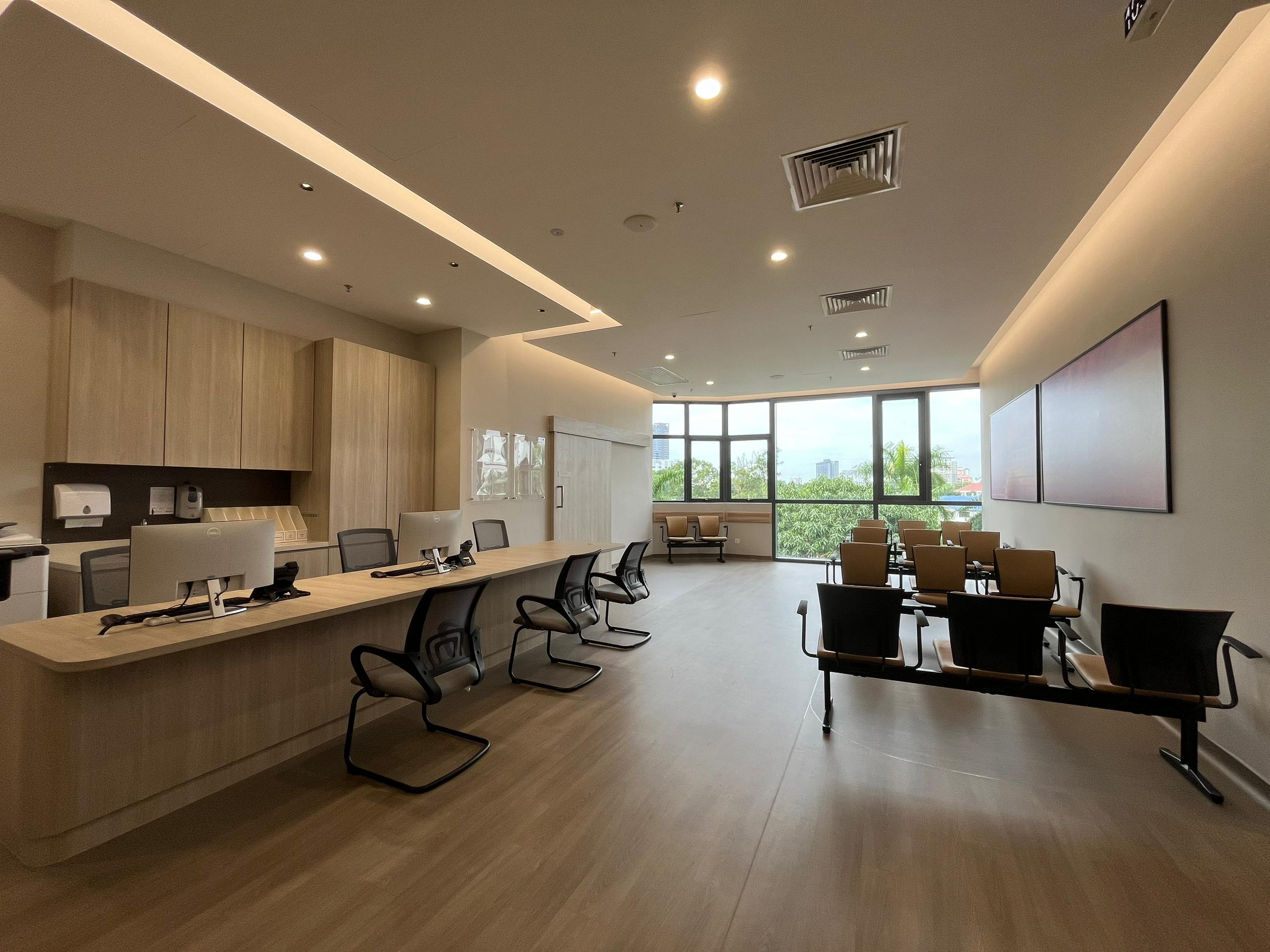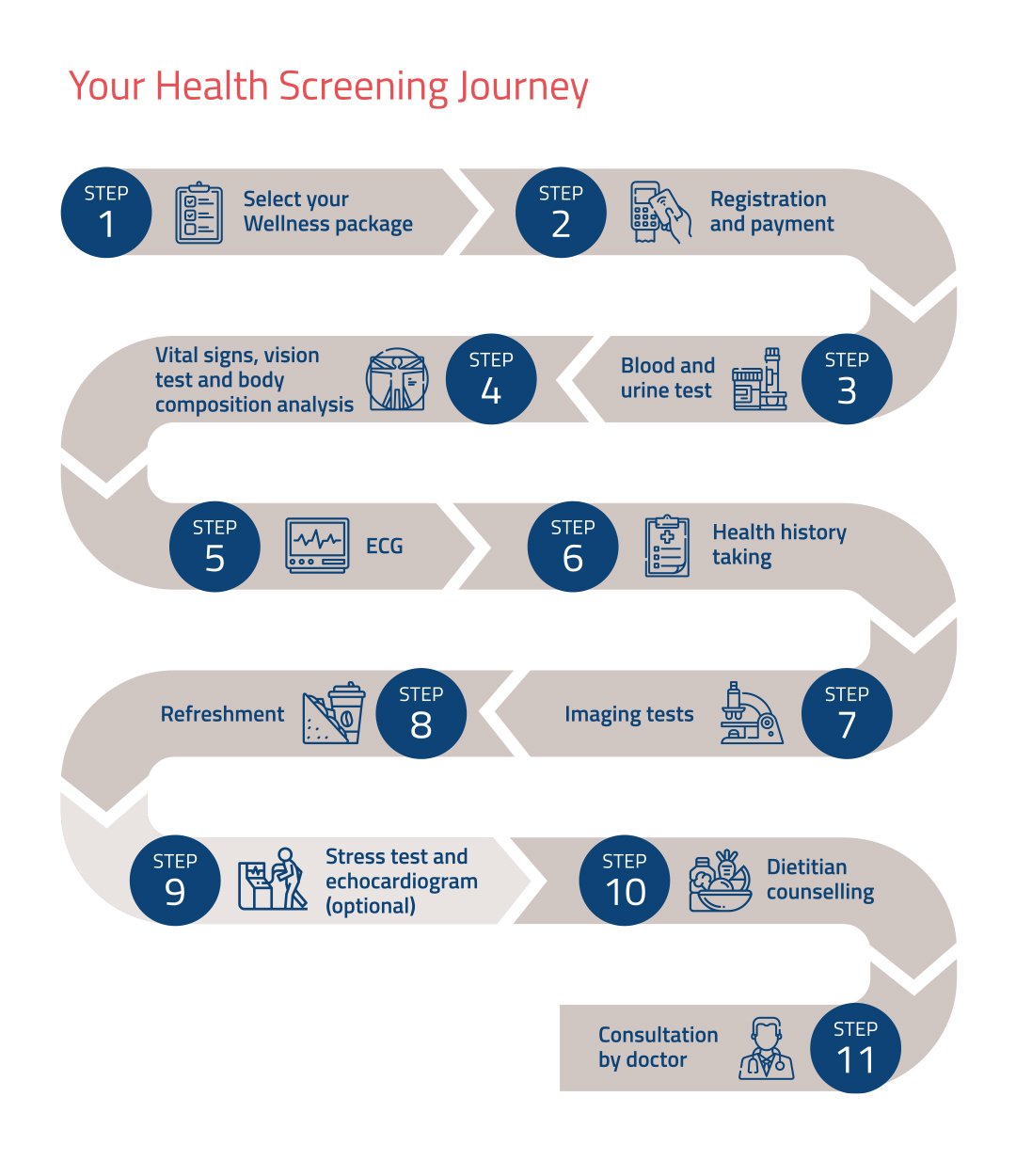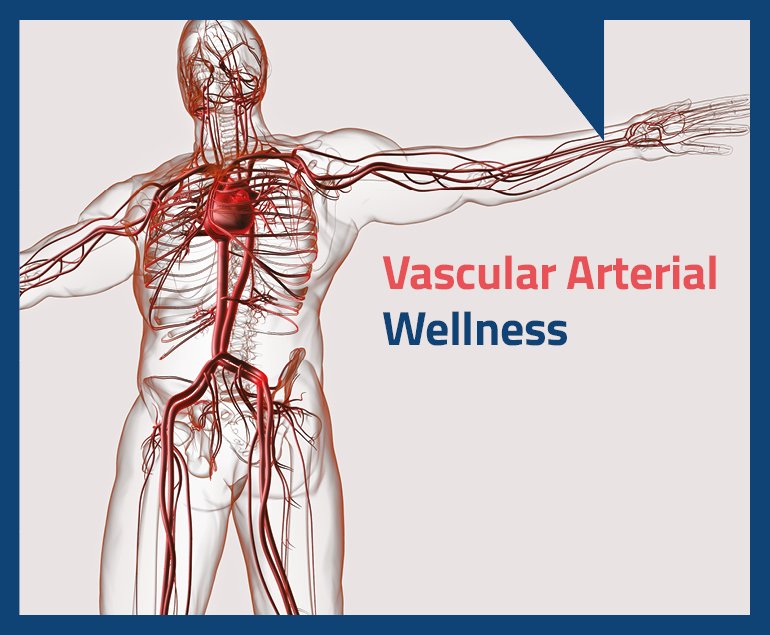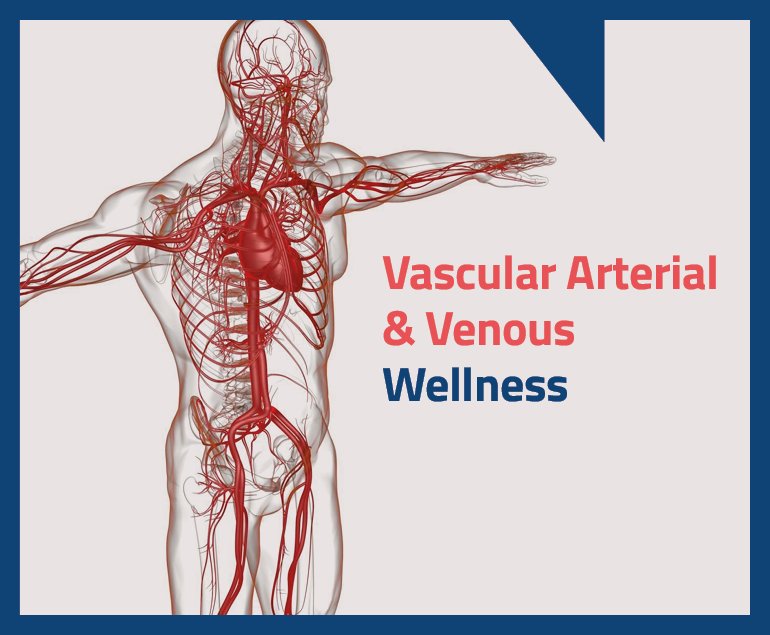Your Health Screening Journey at Northern Heart Hospital
Northern Heart Hospital’s Health Screening Centre is a one-of-its-kind specialty centre that offers comprehensive cardiac and vascular screening as well as general physical checkup services.
The Health Screening Centre is equipped with an echocardiogram room and stress test room, all conveniently located within one floor to provide a complete, seamless, one-stop service experience, integrating international-class medical, wellness, and preventive services.
With our team of specially-trained medical professionals and the extensive diagnostic and laboratory facilities of Northern Heart Hospital, we are able to offer comprehensive and personalised health screening services designed to detect potential health issues early and provide you with peace of mind.
Whether you are looking to assess your overall health, manage chronic conditions, or simply stay proactive about your wellness, our tailored screening programmes are here to support you in leading a healthier, happier life.

Benefits of Health Screening
Health screening offers numerous benefits that can significantly impact your overall well-being and quality of life. Here are some of the key advantages:
Early Detection of Health Issues
Identify potential health problems at an early stage, often before symptoms appear. This early detection is crucial for conditions like cancer, heart disease, diabetes, and hypertension, as it allows for more effective and less invasive treatments.
Preventive Health Management
Health screenings provide valuable insights into your health status, enabling you to take proactive steps to prevent diseases. By identifying risk factors such as high cholesterol, high blood pressure, or abnormal blood sugar levels, you can make lifestyle changes and receive appropriate medical interventions to reduce your risk.
Peace of Mind
Knowing your health status through regular screenings can alleviate anxiety and stress. It provides reassurance and peace of mind, especially for individuals with a family history of certain diseases or those experiencing health-related anxiety.
Customised Health Plans
Screening results allow healthcare providers to create personalised health plans tailored to your specific needs. This personalised approach ensures that you receive the most appropriate care and guidance to maintain or improve your health.
Improved Quality of Life
By detecting and managing health issues early, screenings can prevent complications and chronic conditions that might otherwise impact your quality of life. Early intervention often leads to better health outcomes and a more active, fulfilling life.
Cost-Effective Healthcare
Preventive health screenings can reduce healthcare costs in the long run by avoiding the need for expensive treatments for advanced diseases. Early treatment and lifestyle modifications can be more cost-effective than managing chronic illnesses or undergoing extensive medical procedures.
Compliance with Health Guidelines
Regular screenings ensure you are up-to-date with recommended health checks based on your age, gender, and medical history. This compliance helps in adhering to health guidelines and recommendations, contributing to better overall health management.
In summary, health screenings are a vital component of preventive healthcare, offering numerous benefits from early detection and personalized care to improved quality of life and cost savings. By investing in regular health screenings, you can take control of your health, stay informed, and live a healthier, more proactive life.
Why Get Your Health Screening Done with Us?
Convenience and Comfort
Experience peace of mind from the moment you enter our Health Screening Centre, designed with a soothing ambience to put you at ease. While you wait for your physical checkup, relax in the comfort of our lounge and take advantage of the complimentary internet access.
For your convenience, Northern Heart Hospital’s state-of-the-art laboratories and advanced imaging facilities are able to provide diagnostic test results quickly, so patients need not go through unnecessary delays. In most cases, a full medical report of all investigation results is bound and ready for you to take away on the same day, eliminating the need for you to make return trips to the hospital. For cases needing additional attention, specialty referrals and treatments can begin within days instead of weeks, allowing patients to receive the necessary care and return to recovery sooner.
The Latest Technology
Our Health Screening Centre is a state-of-the-art facility dedicated to providing the most comprehensive and personalised health screening experience. With a team of experienced medical professionals and some of the latest diagnostic imaging equipment, we are dedicated to detecting heart and other diseases at a very early stage, well before they cause serious complications.
Northern Heart Hospital is home to some of the most advanced imaging technology, including X-rays, CT scans, and MRIs, for accurate diagnosis and treatment planning.
Whether you are seeking preventative care or managing existing health conditions, our Health Screening Centre offers a thorough evaluation to ensure your heart’s optimal health and your overall well-being.
Advanced Vascular Screenings for Early Cardiovascular Risk Detection
At Northern Heart Hospital, we provide cutting-edge vascular screenings, utilising the latest technology and specialised expertise to deliver precise and timely assessments of cardiovascular risks.
Our non-invasive screenings, including ultrasound and Doppler imaging, help detect blood vessel blockages or plaque buildup, which may lead to serious conditions such as carotid artery disease, aneurysms, strokes, or other vascular diseases.
If you have a family history of heart disease, stroke, or Peripheral Artery Disease (PAD), are a smoker or have a history of smoking, have high cholesterol, high blood pressure, high stress levels, or diabetes, we highly recommend getting screened. Early detection is key to protecting your health.
Begin Your Journey Towards Heart Wellness at Northern Heart Hospital

- Select your health screening package
- Registration and payment
- Blood and urine test
- Vital sign, vision test and body composition analysis
- ECG
- Health history taking
- Imaging tests
- Refreshment
- Stress test and echocardiogram (optional)
- Dietitian counselling
- Consultation by doctor
Your tests, explained
Cardiovascular Assessment
Also known as electrocardiography, Resting ECG is a common tool used in health screenings to assess the electrical activity of the heart while the person is at rest. It helps in detecting various heart conditions such as abnormal heart rhythms, heart attacks, and other cardiovascular issues. The test is quick, safe, and painless, and provides valuable information about the overall health of the heart.
A stress test, also known as an exercise test or treadmill test, is a diagnostic test used to measure how well your heart responds to physical activity and stress. During the test, you are required to walk on a treadmill while your heart rate, blood pressure, and other vital signs are monitored. It helps our cardiologists assess the efficiency and functioning of your heart, especially during times of increased physical demand. This test is commonly used to detect and evaluate heart conditions such as coronary artery disease or abnormal heart rhythms.
An echocardiogram is a medical test that uses sound waves to create images of the heart. It provides information about the heart’s structure and function, allowing healthcare providers to assess cardiac health. Echocardiograms are commonly used in health screenings to detect various heart conditions, such as heart valve problems, abnormal heart rhythms, and heart defects. The test is non-invasive and typically painless, making it a valuable tool in evaluating heart health.
Blood Investigations
The Renal Function Test (RFT) is a crucial diagnostic tool for assessing kidney health and function by measuring parameters such as glomerular filtration rate (GFR), serum creatinine, and blood urea nitrogen (BUN). It helps diagnose kidney disorders like chronic kidney disease (CKD) and acute kidney injury (AKI). Additionally, RFTs can help assess the impact of conditions like hypertension, diabetes, and heart disease on kidney health.
Kidney diseases are typically progressive, meaning the damage to the kidneys is often permanent and irreversible. Hence, early detection is crucial to prevent any lasting damage. Fortunately, if identified in the early stages, kidney diseases can be treated very effectively. This is vital because kidney diseases increase the risk of heart disease and stroke. Since early kidney disease generally lacks symptoms, testing is the only reliable method to assess kidney function.
Full Blood Count (FBC) is a vital diagnostic tool in health screening that assesses overall health, detects blood disorders like anemia and infections. It is essential for diagnosing nutritional deficiencies and bone marrow disorders. The FBC measures various blood components, including red blood cells, hemoglobin, hematocrit, white blood cells, and platelets, providing comprehensive insights into an individual’s health.
Body Composition Analysis is a method used to evaluate the different components that make up a person’s body, such as fat mass, muscle mass, water content, and bone density. It provides more detailed information beyond just weight or BMI, giving a more comprehensive view of an individual’s body composition. This analysis can be valuable in assessing overall health, setting fitness goals, and monitoring progress over time. Bioelectrical impedance, DEXA scans, and skinfold measurements are used to conduct body composition analysis.
A Blood Grouping test helps determine which blood type you have, such as A, B, AB, or O, and your Rh factor (positive or negative). This information is crucial for blood transfusions, organ transplants, and during pregnancy to prevent any complications.
Liver Function Test (LFT) is a series of blood tests that are commonly used to assess the health of your liver by measuring the levels of various proteins and enzymes in your blood. This screening can help detect liver damage or disease.
Your liver is one of the hardest working organs in your body, performing vital tasks crucial to your health, such as breaking down food, purifying your blood, producing proteins, and storing energy. Issues with the liver can cause severe illness and may even be life-threatening.
LFT is an important tool in evaluating the overall function of your liver and identifying any potential issues early on.
Lipid profile is a blood test that measures the levels of various types of cholesterol and fats in your blood. It typically includes levels of total cholesterol, LDL (bad) cholesterol, HDL (good) cholesterol, and triglycerides. This test is often used as part of a health screening to assess your risk of heart disease and to guide treatment decisions.
Hepatitis B Screening (Ag, Ab) is a blood test for liver health. The test detects both the surface antigen (Ag) and antibodies (Ab) related to the hepatitis B virus. The surface antigen indicates an active infection, while the antibodies show whether the person has been exposed to the virus in the past or has immunity to it. This screening is essential for identifying infections early, monitoring progression, and guiding treatment decisions.
The Hepatitis C Virus Antibody screening is a blood test for liver health. It helps identify the presence of antibodies against the Hepatitis C virus in a person’s bloodstream. It is a common screening method to detect Hepatitis C infection early.
Free T4 and Thyroid Stimulating Hormone (TSH) are common tests used for thyroid screening.
The thyroid glands release hormones into the bloodstream, reaching every cell and organ in the body to maintain balance and harmony.
A Thyroid Stimulating Hormone (TSH) test is conducted to assess the functionality of your thyroid gland, while Free T4 (Thyroxine) tests help in evaluating thyroid function and diagnosing thyroid-related conditions.
These tests help healthcare providers evaluate thyroid function and diagnose conditions such as hypothyroidism or hyperthyroidism.
Rheumatoid Factor (RF) are proteins generated by the immune system that may target healthy tissues in the body. In health screenings, it is often used as a marker for rheumatoid arthritis, an autoimmune condition that causes joint pain and swelling. High levels of RF can indicate an increased risk for developing this condition.
Fasting Blood Sugar Level test measures the amount of sugar in your blood after fasting for at least 8 hours. It helps detect diabetes or prediabetes. HbA1c, on the other hand, reflects your average blood sugar levels over the past 2-3 months. It’s a useful indicator of long-term glucose control, aiding in the diagnosis and management of diabetes. Both tests are essential for diabetes screening.
A VDRL (Venereal Disease Research Laboratory) test is a blood test that checks for syphilis, a sexually transmitted infection caused by the bacterium Treponema pallidum.
The test detects antibodies that the body produces in response to the infection. It is a common screening test for syphilis and helps in early diagnosis and treatment of the disease.
Urine Assessments
A urine test, also known as Urine FEME (Full Examination of a urine sample) and Microalbuminuria test, is a simple and common health screening technique that analyses various components in your urine. This type of test is often used to check for a range of medical conditions, such as kidney disease or urinary tract infections. The presence of certain substances in the urine can provide valuable insights into your overall health and help healthcare providers diagnose potential issues early on.
Radiological Screenings
A chest X-ray is an imaging test that can help identify certain health conditions affecting the chest area, such as heart, lungs, blood vessels, bones, and tissues. It is commonly used in health screenings to detect issues like pneumonia, tuberculosis, lung cancer, and heart failure. During the X-ray, you will be asked to stand against a surface and take a deep breath while the X-ray machine captures images. It is a quick and painless procedure that provides valuable information about your chest health.
An Ultrasound Abdomen is a non-invasive imaging technique that uses sound waves to create images of the organs in your abdomen. This procedure is commonly used in health screenings to assess the organs in the abdomen, including the liver, gallbladder, spleen, pancreas, and kidneys.
It can help detect conditions such as gallstones, liver disease, cysts, tumors, or any other issues affecting the abdominal organs. It’s a safe and painless procedure that provides valuable information for doctors to make informed decisions about your health.
Ultrasound Pelvis is a non-invasive imaging technique that uses high-frequency sound waves to create images of the structures inside the pelvis area. It is commonly used to assess the bladder, ovaries, uterus, cervix, and fallopian tubes of a woman (female organs) and the prostate gland and seminal vesicles of a man (male organs).
Ultrasound Pelvis is safe, painless, and does not involve any radiation exposure, making it a valuable tool in health screening for both men’s and women’s health and general well-being.
Fatty liver and liver fibrosis tests are often used in health screenings to assess the health of the liver.
Fatty liver, also known as hepatic steatosis, is a condition where excess fat builds up in the liver. This condition can be caused by various factors, such as obesity, high cholesterol, diabetes, or excessive alcohol consumption. An ultrasound can detect the presence of fat deposits in the liver.
Liver fibrosis, on the other hand, is the scarring of the liver tissue. It is a result of long-term damage to the liver caused by various conditions, such as chronic alcohol abuse, viral hepatitis, or non-alcoholic fatty liver disease. An ultrasound can also help assess the extent of liver fibrosis by measuring the stiffness of the liver tissue.
Both tests are crucial in health screenings to identify early signs of liver damage and guide appropriate interventions to prevent further complications.
Our bone densitometry imaging test measures the density of bones in your hip and spine. This screening can help in diagnosing osteoporosis or assessing your risk of fractures due to weakening bones. It is a non-invasive procedure that is safe and painless, done using a low-dose X-ray technique. With this test, our doctors are able to evaluate your bone health and guide appropriate treatment options.
A CT Coronary Artery Calcium (CAC) scan is a non-invasive screening test that uses computed tomography (CT) technology to detect the presence and amount of calcium deposits in the walls of the coronary arteries. These deposits are associated with atherosclerosis, which is the buildup of plaque in the arteries and a risk factor for heart disease. The CAC score obtained from the scan helps assess the risk of developing coronary artery disease and can guide preventive measures and treatment decisions. It is a tool used by our cardiologists for cardiovascular risk assessment.
A mammogram is used to detect early signs of breast cancer in women. It involves taking X-ray images of the breasts to identify any abnormalities such as lumps or changes in breast tissue that may indicate the presence of cancerous cells. Mammograms are an essential tool in early detection and can help increase the chances of successful treatment. It is recommended that women undergo regular mammograms as part of their preventive healthcare routine, especially as they get older.
Others
Visual acuity is a measure of how well a person can see using their eyes. It is often tested to assess a person’s ability to see details at a certain distance. The test typically involves reading letters or symbols from a chart at a specific distance, with the results indicating the sharpness or clarity of vision. It helps healthcare providers identify possible vision issues and prescribe corrective measures if needed.
Body Composition Analysis is a method used to evaluate the different components that make up a person’s body, such as fat mass, muscle mass, water content, and bone density. It provides more detailed information beyond just weight or BMI, giving a more comprehensive view of an individual’s body composition. This analysis can be valuable in assessing overall health, setting fitness goals, and monitoring progress over time. Bioelectrical impedance, DEXA scans, and skinfold measurements are used to conduct body composition analysis.
Diet assessment involves evaluating an individual’s dietary intake to determine the nutritional quality and adequacy of their diet. It helps identify any deficiencies or excesses in nutrients, assess the overall balance of macronutrients (carbohydrates, proteins, fats), and pinpoint areas for improvement to promote better health outcomes.
This assessment will provide valuable insights into an individual’s dietary habits and nutritional status.
A dietitian will be on hand to assess, educate, and provide guidance to individuals on their nutritional needs based on their health goals, medical conditions, and lifestyle.
Tumour markers are substances produced by cancer cells or other cells in the body in response to cancer. They can be detected in blood, tissue, or other bodily fluids. In health screening, tumour markers are often used to help diagnose cancer, monitor the effectiveness of cancer treatment, and track the progress of the disease. Different types of cancer can produce different tumour markers, so they can be a valuable tool in the early detection and management of cancer.
Our Consultant Cardiologist will thoroughly examine the screening results for any signs of diseases or abnormalities. Should they detect any abnormalities, our cardiologists will provide a proper diagnosis and then recommend the steps necessary for further treatment.
Health Screening - Frequently Asked Questions
The Health Screening Centre is located on Level 5 of Northern Heart Hospital Penang.
Individuals who are mobile and able to walk independently. Not recommended if you are wheelchair-bound. Please notify our staff if you are pregnant or suspected to be pregnant
Remember to bring your:
- NRIC/Passport ID
- Previous medical reports, radiology images and laboratory results if any
- Drinking water
- Dress comfortably in loose-fitting clothing
- If you schedule a Stress Test, please bring along your jogging shoes.
- Bring a scarf or cardigan if you tend to get cold
- Avoid wearing jewelry
- You need to fast for a minimum of 8 hours before the screening and continue fasting until the screening tests are finished.
- You can have sips of plain water until you complete your tests and receive approval to have your meal.
- Please refrain from alcohol for at least 24 hours prior to beginning your health screening programme.
- For female patients, please ensure that your checkup is scheduled at least 10 days after the last day of your menstruation.
The Essential Wellness screening programme will generally take up to 3 hours to complete.
Related Heart Screening Packages
Make an Appointment
| Monday – Friday | | | 7.30am to 4:30pm |
| Saturday | | | 7.30am to 12:30pm |
| Sunday and Public Holidays | | | Closed |
| Monday – Friday | | | 8:00am to 4:30pm |
| Saturday | | | 8:00am to 12:30pm |
| Sunday and Public Holidays | | | Closed |





